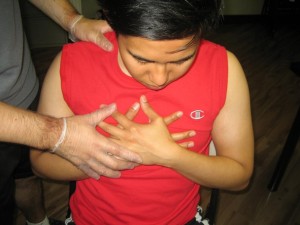A child experiencing heavy breathing can be upsetting for most parents. It is important to note that heavy breathing arises in children of all ages and can be triggered by various health ailments.
What are the common causes?
Heavy breathing in children can be triggered by various health conditions and most involve the inflammation of the respiratory system.
- Croup is characterized by swelling around the vocal cords and windpipe
- Bronchitis results to the inflammation of the bronchi in the lungs.
Labored or heavy breathing might be accompanied by other indications of breathing issues. - Pneumonia is triggered by the buildup of fluid and pus in the alveoli or small air sacs in the lungs.
- Asthma is a long-lasting lung ailment characterized by swelling of several parts of the airways.
What are the indications?
Labored or heavy breathing might be accompanied by other indications of breathing issues such as:
- Short or rapid breathing
- Coughing
- Chest tightness
- Wheezing
As for the cold-symptoms that might arise, it includes fever, chills, runny nose or sore throat. These are likely to manifest from a secondary infection such as bronchitis.
Depending on the seriousness of the symptoms, the child might panic which is often indicated by flaring nostrils, abrupt movements or fearful eyes.
Is heavy breathing due to obstructive sleep apnea?
It is important to note that raucous or heavy breathing which arises at night might be a sign that the child might have obstructive sleep apnea. This is often escorted by snoring episodes and excessive sleepiness during daytime. The condition arises if the child ceases to breath during sleep, usually more than 10 seconds at a time. It might be due to a physical obstruction that diminishes the airflow.
Considerations to bear in mind
Significant heavy breathing might indicate a medical emergency. In case the child is struggling to breathe or you are worried, bring him/her to the nearest emergency department.
Remember that oxygen loss can be dangerous that could lead to damage to the brain and death.

